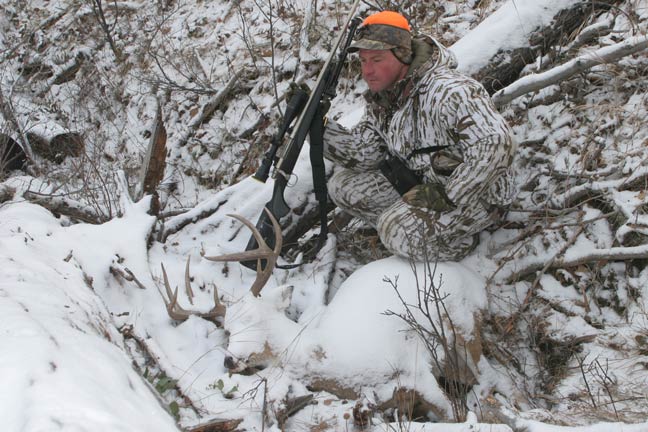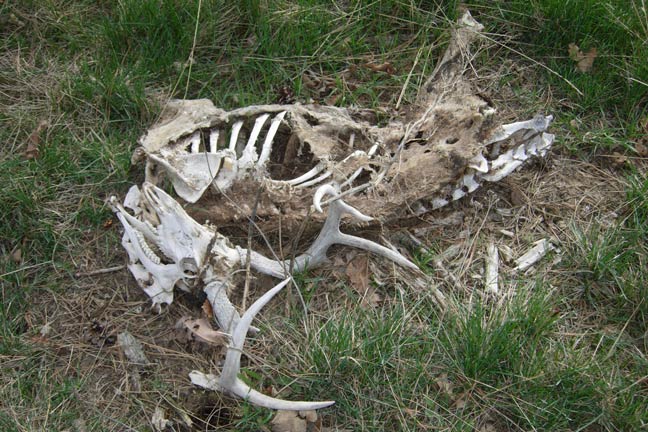Springtime cries out with a renewal across the landscape. Fawns will be hitting the forest floor soon and all whitetails will soon be at their healthiest state of the year. There’s nothing to worry about … right? Wrong!

Throughout the lifecycle of a whitetail they encounter a variety of elements that can lead to death. Understanding what causes deer deaths can help you with your overall management strategies. Start with Deer Mortality 101.
You
The number one cause of deer deaths in North America is … you! Hunters are responsible for the majority of all deer deaths and that includes illegal poaching. This mortality rate varies from state to state depending on hunter success, but you don’t have to look any further than you or your neighbor if you wonder what could happen to a mature buck you have been tracking.
According to the Quality Deer Management Association, the buck and doe harvest annually is almost even across the country. The latest data from QDMA reports that in the 2015-16 season the buck harvest was approximately 2.7 million and the doe harvest was 2.8 million.
What can you do to stop a buck from dying at the hands of others? This is where management comes into play if you have a large enough property. Setting up food, water and refuge in a central location away from the neighbor’s fence can help in keeping deer from straying. By having an oasis on your property with minimal pressure, deer will be that less likely to wander into the reticle of a waiting hunter.
Vehicles
You once again get to play a role in the death of deer, but it comes at a healthy price tag with the collision of your vehicle and a deer. An estimated 1.23 million deer-vehicle collisions occur in the U.S. annually according to State Farm insurance reports. Every one of those collisions costs approximately $4,000 for a cost to the American car owner of than $4 billion in vehicle damage every year.

There’s not a whole lot you can to avoid accidents yourself, but to slow down during the rut, pay attention to deer crossing signs and avoid driving in the following accident-prone states: West Virginia, Montana, Pennsylvania, Iowa and South Dakota.
If your hunting property is located adjacent to a busy byway you will need to heed the strategies found in the hunting section. Keep as much of your deer necessities located in the central interior of your property. By keeping food, water and refuge away from roads you can hopefully keep bucks from being roadkill. If you do find a dead deer look for its location next to a highway and for broken legs. If the collision was severe deer usually only hobble a short way to die.
Weather
Weather has a wide influence in the life cycle of a whitetail. It can be a killer as well. One study out of Wisconsin ranks starvation for killing 17 percent of the deer herd in a farmland setting. Weather can play a critical role in that starvation factor. Drought can cause vegetation to…





